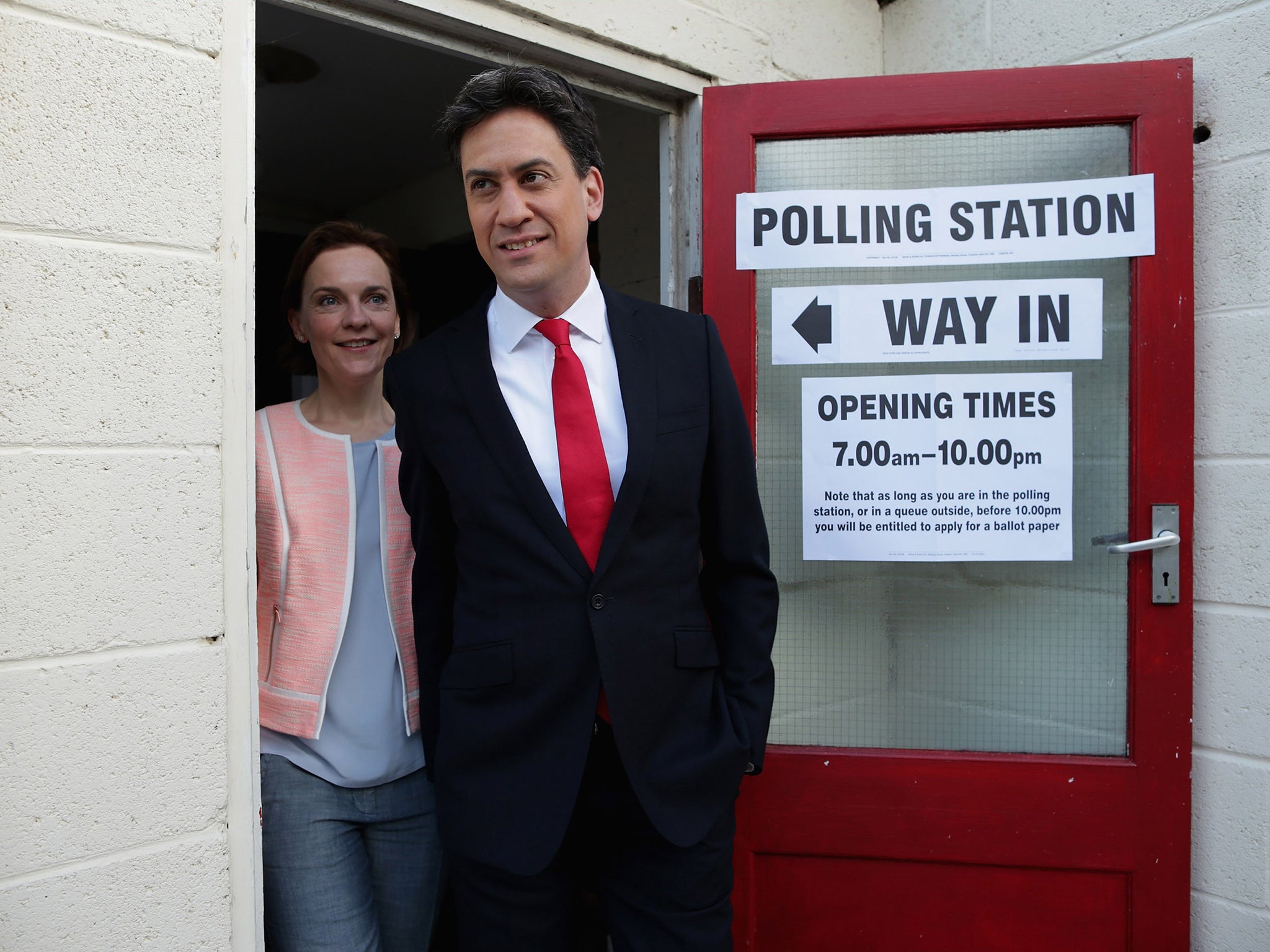General Election 2015: The SNP slur that was too much for Miliband to shake off
Labour was forced to deal with the SNP threat which swept through Scotland

Your support helps us to tell the story
From reproductive rights to climate change to Big Tech, The Independent is on the ground when the story is developing. Whether it's investigating the financials of Elon Musk's pro-Trump PAC or producing our latest documentary, 'The A Word', which shines a light on the American women fighting for reproductive rights, we know how important it is to parse out the facts from the messaging.
At such a critical moment in US history, we need reporters on the ground. Your donation allows us to keep sending journalists to speak to both sides of the story.
The Independent is trusted by Americans across the entire political spectrum. And unlike many other quality news outlets, we choose not to lock Americans out of our reporting and analysis with paywalls. We believe quality journalism should be available to everyone, paid for by those who can afford it.
Your support makes all the difference.“We are not going to spend the next fortnight talking about the SNP,” Ed Miliband told aides two weeks ago. But Labour was forced to do just that, as the Conservatives and their newspaper allies kept up relentless warnings about how Nicola Sturgeon’s party would push a minority Labour government further to the left.
Labour’s worst spell in the campaign came when its planned week-long blitz on the NHS was eclipsed by the spectre of a post-election deal between Labour and the SNP. “Health week became SNP week,” one Labour insider admitted. Reports from Labour officials said the party’s messages were being clouded by speculation about what would happen after the election. Some reported growing fears among voters in England that the “SNP tail would wag the Labour dog”. The Tories’ campaign was working, and hurting.
Mr Miliband’s personal ratings improved – from a very low base. He still trailed Mr Cameron when voters were asked who would make the best prime minister but he closed the gap.
Above all, he looked statesmanlike – not least when he launched Labour’s manifesto and in the leaders’ TV election programmes. Perhaps it was no coincidence that Labour’s worst week was the one without any leaders’ TV event. Even right-wing newspapers struggled to find ammunition with which to ridicule him.
The Labour leader claimed his party was “making the weather” and, with the exception of the SNP cloud, he was right. Labour kept its best issue, the NHS, in the frame.
In the eyes of many Labour figures, the party’s best moment came when Mr Miliband announced he would end “non-dom” status, which allows British residents with links to other countries to avoid tax on their overseas income. It was a defining moment. The Tories were on the wrong side of the argument and knew it. They unleashed a diversionary personal attack on Mr Miliband, but it appeared to backfire.
Labour could never match the Tories’ expensive advertising “air war” but pinned its hopes on winning the “ground war” in the battleground seats with an army of foot soldiers.
Yet he still attended key strategy meetings in London and is regarded by colleagues as one of the unsung heroes of the campaign.
He is credited with turning what some insiders feared was a dysfunctional machine into an effective one after Mr Miliband’s private office at the Commons moved to Labour’s HQ in Brewer’s Green half a mile away for the election.
The economy was the Tories’ other potential trump card but Labour proved more resilient than expected at fending off their attacks. Its message that the recovery had not reached ordinary working people appeared to chime with them, raising the Tories’ fears of a “voteless recovery”.
Belatedly, Labour talked up its pledge to cut the deficit every year by putting it on page one of its manifesto. But independent analysts pointed to the flexibility in Labour’s plans, allowing the Tories to again raise the prospect of a post-election deal between Mr Miliband and Ms Sturgeon.
The Labour leader toughened his language, insisting there would be no formal deal with the nationalists, but the Tories and the media would not allow him to escape the SNP shadow.
Lord Mandelson, the Blairite former cabinet minister, said: “Miliband has moved forwards. He gained credibility. He’s exceeded most people’s expectations. I had a slight fear about him before the campaign began that he withdrew too much from the media. What he’s doing instead is embracing the media and talking through the media to the public with a combination of conviction and passion but also credibility. He has way exceeded my expectations and actually I’m proud of him.”
Join our commenting forum
Join thought-provoking conversations, follow other Independent readers and see their replies
Comments